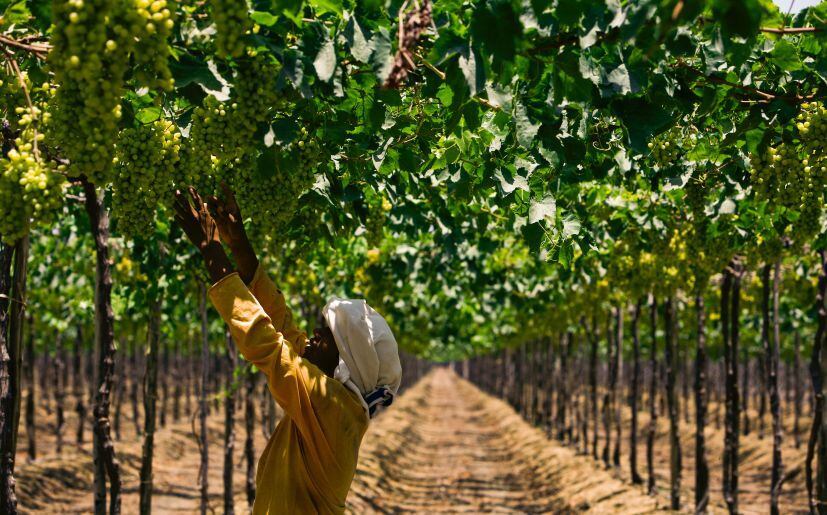
He climate change will affect tourism and agriculture in the countries of southern Europe and the Mediterranean, therefore their maximum productivity in the medium term, warns the European Central Bank (ECB).
In an article in the ECB’s next economic bulletin, published this Wednesday, the monetary entity’s economist Miles Parker considers that doing nothing against climate change is worse for productivity and more expensive than the economic impact of the transition to a from scratch carbon emissions net.
“The transition itself may reduce potential production especially in the short term. “Well-conceived, well-communicated and well-coordinated policies can help alleviate these negative impacts.”Parker says in the article.
However, some countries backtrack on their environmental goals or commitments.
The German Minister of the Economy, the Green Robert Habeck, is renouncing for the moment to tighten energy efficiency standards for newly built housing.
Previously, the German coalition government between social democrats, greens and liberals agreed on the standard of energy saving EH40, which was due to come into force in 2025 and indicated that an efficient house requires only 40% of primary energy compared to a reference building.
The British Prime Minister, the conservative Rishi Sunak, recently announced that he is going to reduce or delay some of his objectives to lower the CO2 emissions in the next years.
A survey of 5,733 European companies, 91% SMEs with less than 250 employees, conducted by the ECB, also published in the next bulletin, shows that 60% are more concerned about transition risks due to stricter climate standards, regulation and pricing of carbon emissions. carbon than by physical risks, especially large companies.
Many companies consider environmental costs too high now because they do not internalize the benefits they will have if they address climate change, according to economists at the ECB.
Tourism and agriculture
Parker describes that “Long-term changes in average temperatures and rainfall are likely to negatively affect certain sectors and regions in Europe.”
He gives tourism as an example because warmer winters will reduce snow and the possibility of skiing.
“Many Mediterranean regions are now ideal for summer tourism, but temperatures “Higher averages and a reduced availability of fresh water during the high season would significantly reduce its sustainability”according to the ECB economist.
The overall impact on tourism in southern Europe will depend on whether tourists shift their holiday dates to the spring and autumn months.
Coastal regions in the Mediterranean are also at high risk of flooding from rising sea levels, which can reduce the value of tourism-related capital, such as hotels, and reduce investments in affected regions.
He climate change It will also affect agriculture in southern Europe because crops will give lower yields, although in northern Europe yields may increase.
The German insurer Allianz recommended in a report in July that southern Europe invest in sustainable tourism to preserve natural environments and cultural heritage.
For example, by improving transport and accommodation networks, promoting off-season tourism and diversifying the offer beyond beach holidays to attract tourists all year.
Tourism accounts for the majority of gross value added in Croatia (11.3%), Portugal (8.1%), Greece (7.7%), Spain (6.9%) and Italy (6.2%), according to Allianz figures.
The heat
Additionally, higher temperatures reduce productivity and hours worked by workers.
The temperature at which workers are most productive is between 19 and 22ºC and efficiency falls below or above this range, according to Parker of the ECB.
Construction workers reduce their time worked on hot days.
Heat not only affects physical work, it also harms mathematical ability.
Low-income countries or regions tend to have hotter climates and specialize in climate-exposed sectors such as agriculture and tourism, which is why “increasing global temperatures will exacerbate inequalities between countries and regions,” adds Parker.
Source: Gestion
Ricardo is a renowned author and journalist, known for his exceptional writing on top-news stories. He currently works as a writer at the 247 News Agency, where he is known for his ability to deliver breaking news and insightful analysis on the most pressing issues of the day.












